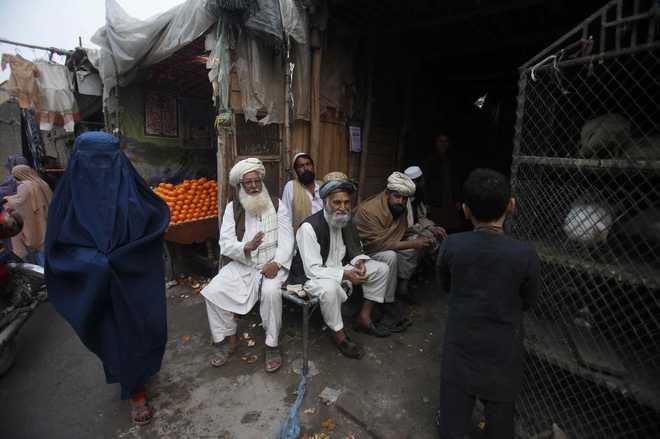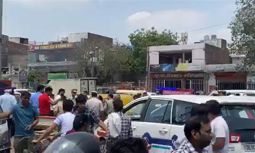
(UN)biases across the border: An Indian narrative about Pakistan, with disarming honesty, always turns out to be qualitatively different from the account of a Pakistani or a western expatriate Photo: Reuters
Sandeep Dikshit
Yawn. Another book on Pakistan. What is there left to write after prolific writers such as Husain Haqqani and the huge body of western compulsive strategic affairs trackers is done exploring every angle, every nuance that describes the complexity of Pakistan?
Meena Menon’s work is different because it is only once in a long, long while that an Indian gets to breathe, live and then write on Pakistan. Islamabad and New Delhi had worked out a simple arrangement. Only two journalists from either country were allowed to serve in the country, with heavy restrictions on their movement.
Apart from the diplomats who serve out three years in Islamabad, only two other Indians, both journalists, are given that privilege. Meena Menon was the last of the pair because she, along with the PTI correspondent, Snehashish Alex Philip, were asked to leave prematurely and none appointed in their place. Thus, for a very, very long time we are not going to be told about the various components that make up Pakistan exclusively from Indian eyes.
An Indian narrative about Pakistan, especially with Meena Menon’s disarming honesty, always turns out to be qualitatively different from the account of a Pakistani or a western expatriate. The book brings forth the differences in approach to shared history and common events that are inevitably missing in a western author’s accounts.
As an Indian woman journalist, she begins with three vulnerabilities of operating in Pakistan — an Indian who is always in the crossbow of the Pakistani intelligence establishment, a woman who gets her more than fair share of crank callers and suitors and a journalist who in Pakistan is treated shabbily for stepping out of line. As Meena wryly recounts, she wasn’t Barkha Dutt who could transcend these fault-lines to swing appointments with the high and mighty.
Her tone junks loftiness for everyday lingo and standoffish strategic speak for some basic commonsensical observations. Meena casts her net wide. There is the mandatory take on bilateral relations and the normal Indian travail for a visa but she explores the Left parties and their potential, an aspect that is never ever mentioned by the authors hailing from the expatriate section or the poshest of the posh F-7 sector in Islamabad. Many interesting by-tales emerge. Like how the President of the Awami National Party had once set up a trade union in the Pakistan military and is still around to tell the tale; That, the Leftists there have taken many more risks than their Indian counterparts, even to the extent of plotting a coup in the 1950s.
And then there are the lost Malyalees, the people who got stranded in Karachi or who crossed over to Pakistan on their own. The Punjabis found the smells and sights familiar but Pakistan for Muslims from Kerala was both an el Dorado and a miasma. Among them is the lovable granduncle of every Indian and Pakistani alike, BM Kutty, whose autobiography’s title tells the conflict within him and its attempt at resolution: Sixty years in self exile and no regrets.
Like several other Indian correspondents before, Meena had no problems diving into Pakistani social life though it was not as effortless as a north Indian would wish. But the shared cultural traits, despite 70 years of estrangement, is imbued with more empathy in her story of substratas like the Afghan refugees, the student activist and the differently abled. Here is a Pakistan that has both: the guns and intimidation that co-exist with the humdrum of daily life with its Pakistan-specific angularities and aromas. An Indian captures both much better than the firangees. It is a pity Pakistan has suspended the practice of hosting two Indian journalists. Their tales, especially those by the unjaundiced, are more fulfilling for the Indian palate.



























